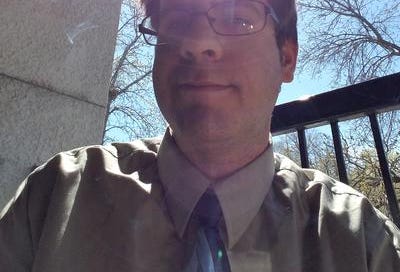I'm not trying to be a dick here, ladies and gentlemen. I don't have to try, being a dick just comes natural to me (cue the hi hat 'ba-dum-tss'). However, I have an unfortunate tendency to be a cynic, and more and more often as time goes by, people offer up ample evidence that my cynicism is well-earned.
On Sunday night, just a short bit ago as I write this, Chris Pavlovski, CEO of Rumble, a video-sharing platform oft-touted as a free speech alternative to YouTube, participated in a Twitter Spaces to address some concerns regarding Twitter's Community Notes mechanic. Mr. Pavlovski pointed out, and I believe rightly so, that Community Notes seems like it could easily fall into the same abusive manipulations that all of the 'fact-check' systems on other social media networks did before it. I have another observation to make on that score, and I'll come back to it in a minute. First, I want to take a moment to shine a light on a moment of Doublespeak that Rumble's CEO partook of moments later in the Space.
When one of the co-hosts of the Space asked about Mr. Pavlovski's possible worries about 'hate speech' on the Rumble platform getting amplified, the CEO replied by saying that Rumble doesn't have a, quote, "method of amplification of any particular channel, video or stream that could make that a concern like there is on other platforms." While this is technically correct NOW, since the seeming removal of the Rumble ranking system that the site used to employ (users could vote up videos for daily head-to-heads of a sorts), for him to say that Rumble has no such mechanism is somewhat disingenuous.
After all, Mr. Pavlovski, I see you Tweeting all the time about your newest sign-on hosts and channels. You have big content creators on Twitter and Truth Social consistently talking about Rumble Raids and #Rumbletakeover . The mechanisms may be getting deployed on OTHER platforms, so you are technically correct, but this would be akin to saying "Well, I didn't kill Mr X, I just pointed out to a couple of whacked out psychos where the weapons were and told them that Mr. X was the one who put the microchip in their heads."
A bit of hyperbole, yes, but it boils down to this- you know what you're doing. If you were genuine about not wanting to amplify certain types of content or specific creators, you'd actually respond on Twitter and elsewhere to users or creators who have less than 100k followers/subscribers. Don't tell us you're looking out for the 'little guy' when even a cursory look through your Twitter feed shows not a single interaction or response to a small-timer.
Now, I've done my bit grumbling about the man, so it's time to pull a Jen Psaki and 'circle back' to the accurate point he was making about Twitter's Community Notes. Look, I, like many thousands of other folks, have had a knee-slapping good time watching folks who were in absolute control of the platform and 90% of socio-political dialogue in mainstream and Big Tech media lose their minds whenever their long-standing allies finally feel the sting of having that 'fact-check' mechanism thrown back in their faces. Oh, the joy of sweet vengeance!
But we must be cautious not to celebrate too quickly here, because like Pavlovski and another speaker pointed out (I apologize Miss, I can't remember your name right now), these Community Notes are just a new form of fact-checkers. Worse yet, it seems that Elon's team of engineers learned from the mistakes that Facebook's teams and third parties made before them, in that a Community Note, unlike those other outfits, carries no attritbution. With Facebook's fact-checkers, and those who offer their mercenary services to outlets like The Washington Post et all, we were at least able to wonder, "Who are these people? Can we ask them where they got their information from?" With Community Notes, only those INSIDE of Twitter knows who's offering up these little editorial observations.
But pay no attention to the man behind curtain, right, Elon?
Discussion about this post
No posts



